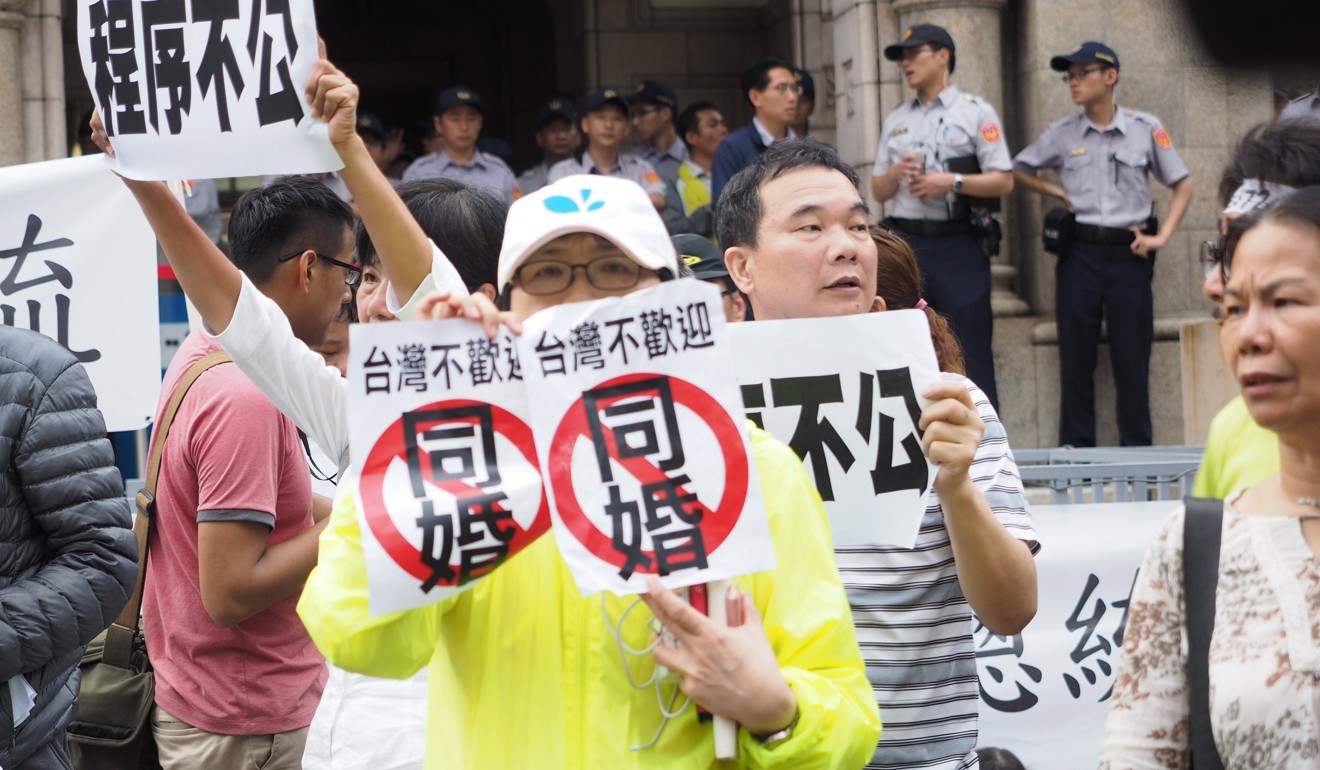
Taiwan’s landmark ruling on same-sex marriage highlights the gulf with mainland China
Jerome A. Cohen says the decision to legalise gay marriage is the latest in progressive top court rulings that highlight Taiwan’s accomplishments in achieving democratic freedoms under the rule of law, and boosts its standing among democratic allies
The constitutional court has taken similar actions in other controversial situations in recent decades. For example, its decisions played a critical role in ending the power that Taiwan’s police long exercised outside the regular judicial system, to imprison anyone they chose to declare a “hooligan”. The court also required that the government end an abuse similar to the notorious “re-education through labour” recently abolished, at least in form, in mainland China.
The decision highlights the sad contrast between Taiwan’s flourishing version of the rule of law, democracy and human rights, and those of the mainland
The much more controversial same-sex decision reminds me of the landmark US Supreme Court Brown vs Board of Education ruling, which in 1954 led a divided America away from segregated schools and other previously legal segregation practices. Although Brown, like last week’s Taiwan case, generated a major backlash from many conservative groups, it proved a major step toward social progress.
Of course, the same-sex decision highlights the sad contrast between Taiwan’s flourishing version of the rule of law, democracy and human rights, and that of the mainland, which has become ever more repressive.

Taiwan’s gay marriage ruling forces Beijing to give it serious thought
I think the decision’s positive impact on the Chinese people will far outweigh any short-run, adverse impact it may have on already strained cross-strait relations. The mainland’s strict censorship and manipulation of the media have not prevented important segments of its population from learning about the decision in Taiwan and its meaning.
Although many in the mainland may not welcome the decision, China traditionally has been more open to same-sex relations than more Christian-dominated countries, and the more educated classes will appreciate not only the wisdom and fairness of the decision but also the prominent and respected role of the judiciary, in a political system that genuinely practises government under law.
The decision’s positive impact on the Chinese people will far outweigh any short-run, adverse impact ... on cross-strait relations
It is a sobering fact that, 68 years after its establishment, the People’s Republic of China does not have a special constitutional court, does not permit its regular courts to apply constitutional protections and has failed to make significant use of the Standing Committee of the National People’s Congress for this purpose, even though the committee is the institution authorised to apply the mainland constitution.
More broadly, the Taiwanese constitutional court’s decision is a shot in the arm not only for Taiwan’s self-awareness and self-confidence but also for its international standing – reminding a world community that has by and large formally excluded it of its immense political, legal, social, economic and cultural progress.
Although a Chinese civilisation, Taiwan provides increasingly effective protection for human rights, judicial independence, separation of powers, constitutionalism and all the other “Western values” openly condemned on the mainland at present.
Taiwan’s gay marriage ruling raises hopes across Asia
Until now, Taiwan’s innovative adoption and implementation of major international human rights covenants has been too little recognised abroad. Yet, its national security and indeed survival depend mainly on the continuing willingness of the US, Japan and other democratic countries to guarantee it protection against the threat of military action by China. And that willingness will turn, in large part, on the extent to which they are aware of Taiwan’s accomplishments in achieving democratic freedoms under the law.
Jerome A. Cohen, adjunct senior fellow at the Council on Foreign Relations, is professor of law at NYU and faculty director of its US-Asia Law Institute

